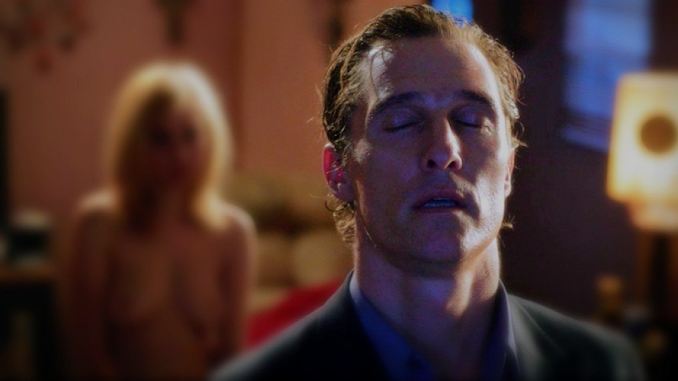Kentucky Fried Carnage: The Twisted Delights of Killer Joe

“The important thing is not ‘Does it go too far?’ but ‘Is it effective?’”, William Friedkin said in a 2012 interview discussing Killer Joe, to this day his most recent narrative feature film. In a way, though, that mantra would apply to the entire filmography of a man who terrified the church with The Exorcist, incited protests and eventual reappraisals with Cruising, enshrined David Caruso into Hollywood legend with Jade, and more.
Friedkin first teamed up with playwright Tracy Letts to adapt the writer’s Bug from the stage into the 2006 film starring Ashley Judd and Michael Shannon. Taking place entirely in one motel room where an Oklahoma waitress and a former soldier succumb to violent paranoia manifested as hallucinatory (or are they?) bug infestations, it’s a startling experience led by two quaking performances that fully ensnare you in a headspace you’ll never want to be in again—one that will stick with you for days after viewing. The duo would reunite five years later for Killer Joe, an adaptation of Letts’ first play, which he began writing in 1990, and the spirit of Bug lives on through it.
In a special feature on Killer Joe’s Blu-ray, Friedkin gets visibly excited: “I hope to surprise you. That’s my goal. If I haven’t, I’ve failed. It’s that simple. [The film] may anger you, you might even hate this film. But it’s gonna be in your face. And hopefully it’ll surprise you, and not simply ‘interest’ you. If it just ‘interests’ you, I’ve failed totally.”
If that’s the mark, one imagines Killer Joe was a resounding success, as audiences couldn’t possibly be prepared for what was to come. Certainly the MPAA ratings board at the time wasn’t, as the film ignited controversy when they flagged it with an NC-17 rating, which Friedkin refused to have cut down for an R, stating that cutting it would be akin to the United States’ misguided intervention in Vietnam.
-

-

-

-

-

-

-

-

-

-

-

-

-

-

-

-

-

-

-

-

-

-

-

-

-

-

-

-

-

-

-

-

-

-

-

-

-

-

-

-








































